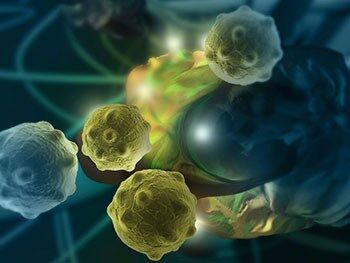University News Last updated 05 June 2015

Green tea ingredients can improve the delivery of cancer killing drugs, researchers will tell a Birmingham City University conference next week.
The two-day 'Advances in Nanotechnology' event at the University's City Centre Campus on 9 to 10 June, will see researchers from the Institute of Bioengineering and Nanotechnology (IBN) highlight how their research indicates improved tumour targeting abilities.
"The numerous health benefits of green tea inspired us to utilise it in drug delivery systems and this really is an exciting breakthrough in nanomedicine," said IBN executive director Professor Jackie Ying.
Professor Ying's research team conducted animal studies to evaluate the performance of IBN's green tea-based delivery system, with the study revealing that their green tea-based drug carrier loaded with Herceptin, reduced tumour growth much more effectively with twice as much drug accumulating in cancer cells when compared to administering Herceptin on its own.
When injected into the body, the drug carriers act like homing missiles, travelling through the body to zoom in on the target cells where they will release the cancer destroying drugs.
The green tea ingredient used in the drug carrier, epigallocatechin gallate (EGCG), is an antioxidant known to have therapeutic applications in the treatment of many disorders.
Professor Ying will join a host of world-renowned scientists and engineers at the Birmingham conference next week including Professor Toshio Fukuda from Nagoya University in Japan and Professor Nick Quirke from Imperial College London, as they also discuss new technologies designed to aid surgical procedures and new uses of nanotechnology.
Nanotechnology is the manipulation of matter on an atomic, molecular, and supramolecular scale. A nanometer is one-billionth of a meter.
Dr Mohammad Sakhawat Hussain, senior member at Birmingham City University's Faculty of Computing, Engineering and the Built Environment, said: "The event provides a great opportunity to see and hear of the potential that nanotechnology has to impact on our lives".
Other speakers at the event include Professor Virginia Ayres from Michigan State University and Professor George Pharr from the University of Tennessee.